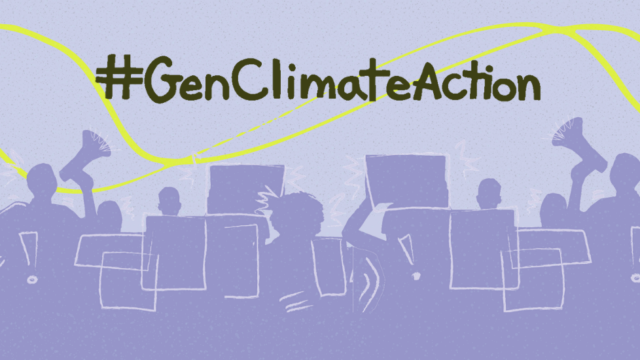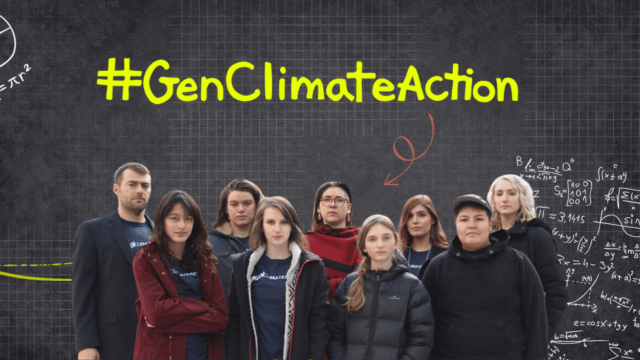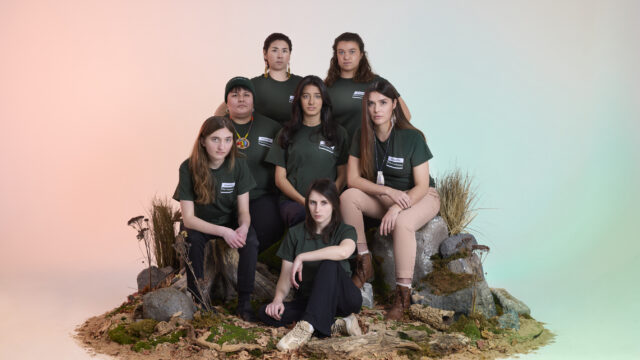Toronto, Ont./ Traditional territories of several First Nations including the Williams Treaties First Nations, Huron-Wendat, the Anishnaabeg, Haudenosaunee, Chippewas, and the Mississaugas of the Credit First Nation — Seven young people from across Ontario are appealing the dismissal of their crucial climate case to the Court of Appeal for Ontario. Mathur et. al., a historic youth climate case, faced a setback in April 2023 when it was dismissed by the Ontario Superior Court.
These courageous youth are determined to continue the fight to protect their generation and future generations from government caused climate harms. They are committed to seeing this through the legal system.
Sophia, Zoe, Shaelyn, Alex, Shelby, Madi, and Beze, backed by lawyers from Ecojustice and Stockwoods LLP, led a legal challenge of the Ontario government’s decision to significantly weaken the province’s 2030 climate target. They argued that Ontario’s decision violates youth and future generations’ rights to life, security of the person, and equality protected under the Canadian Charter of Rights and Freedoms.
In April 2023, the Ontario Superior Court dismissed the application but made several positive findings. For instance, the judge fully endorsed the important science and facts of climate change, found that Ontario’s target is increasing the risk of harm and death to Ontarians, and acknowledged that young people and Indigenous Peoples are disproportionately impacted by climate change.
The judge also found that this case is justiciable, which means that it is an appropriate legal question for a court to decide – making this case the first Charter-based climate case in Canada to succeed on this point. The applicants will build on these significant findings and hope to establish a full Charter violation on appeal.
In their appeal, the applicants intend to show — among other things — that Ontario is not just failing to act on climate change; by permitting dangerous levels of emissions in this province, Ontario is actively causing the increased risk of harm and death to Ontarians.
The applicants will also argue that the judge erred in finding that Ontario’s target is not arbitrary, while also determining that it “falls severely short of the scientific consensus” on the necessary climate action, and that the gap between them is “large, unexplained and without any apparent scientific basis”.
Regardless of the result at this stage, the young applicants involved in this case have put the issue of the impact of climate change on youth and future generations to the forefront of national debate.
Youth climate litigation around the world has been key in pushing governments to take this emergency seriously, and these seven young Ontarians are determined to continue fighting for a safer future at the Court of Appeal and beyond.
Danielle Gallant, Ecojustice lawyer, said:
“Cases like Mathur et. al. that ask crucial and novel legal questions often take years and several hearings in front of different levels of courts before a positive decision is achieved.
“While this case did not succeed at the Ontario Superior Court, this does not mean that it cannot achieve a significant victory at the Court of Appeal for Ontario, or even the Supreme Court of Canada, in the future. This case is too important not to keep going.
“The seven young applicants are following a long tradition of turning to the Charter at pivotal moments in the fight for justice. They are committed to continuing to fight for a better future.”
Nader Hasan, partner, Stockwoods LLP, and lead counsel to the applicants, said:
“Nobody disputes that climate change is an existential threat to all of us. But it’s high time that we recognize that governments must play a meaningful role in addressing this threat. That’s what this case is about. It’s about governments accepting responsibility for one of the most pressing challenges we have ever faced. Governments have had decades to do the right thing. They didn’t. So we’re going back to court to try to change that.”
Sophia Mathur, applicant, Sudbury, Ont., said:
“We are all in the crosshairs of the climate crisis and I have been struck by it. In the winter of 2019, Sudbury was walloped by record snowfalls and rapid thawing and freezing cycles. We were forced to evacuate our home by city officials and rebuild the roof and upper floor of our house after they buckled under a meter of ice.
“That event motivated me to become involved in this case.
“The court has already acknowledged the fact that climate change is an existential threat and that it is disproportionately affecting young people. All of us, including our lawyers and my co-applicants, broke new ground again with this decision. This case is far from over and we are undaunted in our commitment to see this through.”
Shaelyn Wabegijig, applicant, Peterborough, Ont., said:
“I am certain the Ontario Government is aware of the devastating realities of the climate crisis, and they must adjust their actions and decisions accordingly. I would rather that governments like Ontario change their ways before the people have to rise up or the Earth forces them to stop making self-destructive and life-denying decisions.
“Human economies are and will always be subject to Creator’s ecosystems. The courts and the government must listen to the land, the science, the Indigenous Peoples, the youth and all people like us who understand how we must live according to natural laws. I will support this court case until it runs its course in the pursuit of life-affirming and scientifically informed governance.”
Background:
- In 2018, the provincial government gutted Ontario’s climate targets and replaced them with one woefully inadequate 2030 target, enabling dangerous levels of emissions over the next decade.
- The seven young applicants launched the case in 2019. Following attempts by the Ontario government to have it thrown out, they made history by being the first climate lawsuit based on Charter protected rights to be heard on its merits in a Canadian court in September 2022.
- Around the world, young people are at the forefront of the fight against the climate emergency and are demanding that political leaders do everything they can to secure a livable future for them and future generations. They are organizing in their schools, taking their message to the streets, and going to court to fight this crucial battle.
About:
Ecojustice uses the power of the law to defend nature, combat climate change, and fight for a healthy environment. Its strategic, public interest lawsuits and advocacy lead to precedent-setting court decisions and law and policy that deliver lasting solutions to Canada’s most urgent environmental problems. As Canada’s largest environmental law charity, Ecojustice operates offices in Vancouver, Calgary, Toronto, Ottawa, and Halifax.
Nader Hasan and Justin Safayeni, of Stockwoods LLP, are veteran constitutional lawyers with a track record of holding government to account at every level court in Canada, including at the Supreme Court of Canada. In 2017, they led the successful legal challenge to seismic testing in the landmark Indigenous rights case, Clyde River v. Petroleum Geo Services Inc., 2017 SCC 40.





